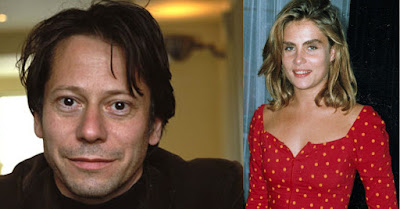American senators are generally played for laughs in Hollywood films, with character actors putting on their most obsequious, corrupt and slimy expressions. Think Senator Stern in The Avengers or Senator Finistirre in Thank You For Smoking. Not so when James Stewart plays the part, as in Valance. Then it’s right back to what American schoolkids learn about in their books – honest, decent men, a living embodiment of the Declaration.
Enjoy my reviews? Follow by email now available -- see the sidebar.
WARNING: CONTAINS SPOILERS
Follow @MichaelHardach
Talking of the
Declaration, one of the best lines comes from Stewart’s character. He is teaching the token black character in
the film, Pompey, how to read and Pompey has just fluffed the bit about all men
being created equal. ‘That’s okay,
Pompey. A lot of people forget that
part,’ quips Stwart.
Review continues below...
Inspire your baby with the Visual Baby series of picture ebooks. Original patterns and art designed for young eyes. Try them today by clicking the covers below.
"It's the only thing that stops her crying" Katie Alison
"All three of my children love this book" Janice Peterson
"Moons, trees, leaves... fabulous!" Linda Matson
John Wayne has a largely subdued part, spending more time getting out of people’s way than acting for himself. He is the muscle that allows Stewart’s narrative to exist in a town full of toughs. No sentimental allowance is made for Stewart’s bravery. Without muscle and gunpower to back him up, he would be snuffed out in a moment. And even his eventual beating of the bully comes with a twist.
Deep-crust-apple-pie America needs good men with guns ready to back it up, seems to be the message. Of course if the bad guys didn’t have guns themselves… whoa! I’m not getting into that one…
Personal Score: 7/10
Follow @MichaelHardach
This is part of a series of film reviews where I give my comments on IMDB Top 250 films as a writer. The idea is that over time these posts will build into a wide-ranging writing resource.
For more details about the approach I've taken, including some important points about its strengths and weaknesses (I make no claims about my abilities as a film critic or even the accuracy of my comments... but I do stand by the value of a writer's notes on interesting films), see my introductory post here.






